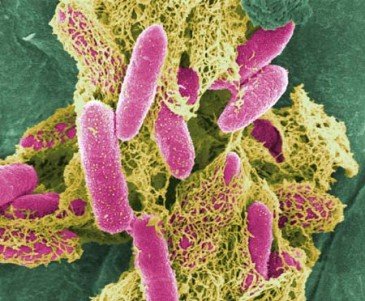According to US researchers, food poisoning bacterium Clostridium perfringens may be implicated in Multiple sclerosis (MS).
Lab tests in mice by the team from Weill Cornell Medical College revealed a toxin made by a rare strain of Clostridium perfringens caused MS-like damage in the brain.
An earlier work by the same team, published in PLoS ONE, identified the toxin-producing strain of C. perfringens in a young woman with MS.
But experts urge caution, saying more work is needed to explore the link.

No-one knows the exact cause of MS, but it is likely that a mixture of genetic and environmental factors play a role.
Clostridium perfringens, found in soil and contaminated undercooked meat, comes in different strains.
Most cases of human infection occur as food poisoning – diarrhoea and stomach cramps that usually resolve within a day or so. More rarely, the bacterium can cause gas gangrene.
A particular strain of C. perfringens, Type B, which the Weill team says it identified in a human for the first time, makes a toxin that can travel through blood to the brain.
In their lab studies on rodents the researchers found that the toxin, called epsilon, crossed the blood-brain barrier and killed myelin-producing cells – the typical damage seen in MS.
Lead investigator Jennifer Linden said the findings are important because if it can be confirmed that epsilon toxin is a trigger of MS, a vaccine or antibody against the toxin might be able to halt or prevent this debilitating disease.
Jennifer Linden presented the group’s latest findings at a meeting of the American Society for Microbiology.
